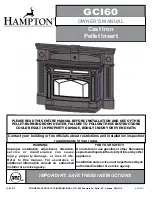Nordica TermoISOTTA - DSA, Instructions For Installation, Use And Maintenance Manual
The Nordica TermoISOTTA - DSA product comes with a comprehensive Instructions for Installation, Use and Maintenance Manual to guide you through the setup, operation, and upkeep of this exceptional appliance. Easily download the manual for free from our website, ensuring you have all the necessary information at your fingertips.

















